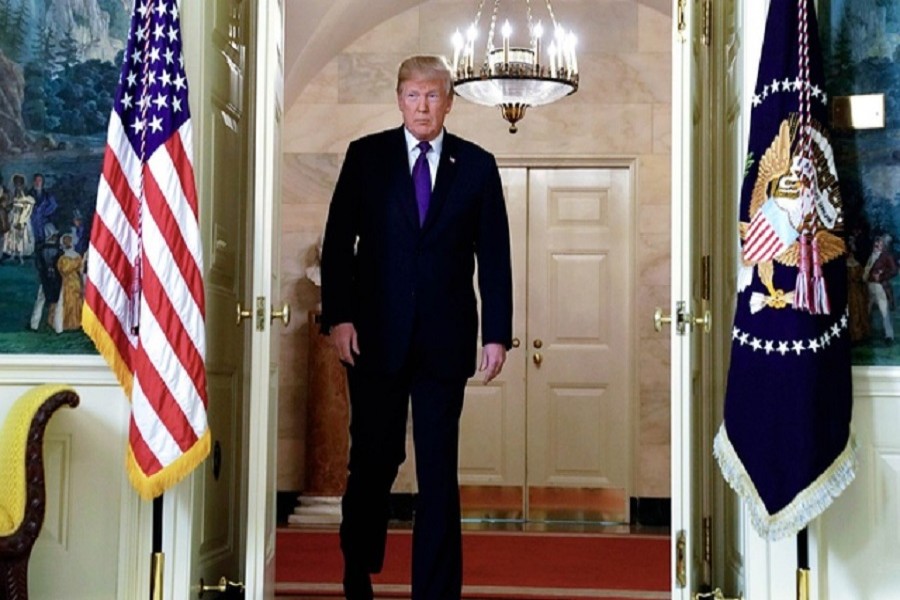About 10 days ago, US President Donald Trump told national security aides that he wanted US forces out of Syria in six months or so, adamant that it was time to bring them home after largely defeating Islamic State militants.
"Very soon, very soon, we're coming out," Trump said in telegraphing his thoughts to a crowd in Richfield, Ohio, on Mar 30. “We’re going to get back to our country, where we belong, where we want to be.”
Now, Trump has abruptly deepened US involvement in Syria, mustering a coalition of US, French and British forces to attack Syrian facilities related to production of chemical weapons after a poison gas attack last week killed dozens of people in Douma, Syria.
Aides said Trump's attitude changed when he was shown images of Syrians killed by the chemical weapons last Saturday, about a year after he first ordered air strikes against Syrian targets to retaliate for an earlier use of the banned substances.
"When he sees these sorts of things, they outrage him," said a source familiar with the internal debate at the White House.
Trump had also grown exasperated with Russia for doing nothing to stop the Syrian government from using the weapons.
He first made clear that he intended to launch new attacks in a series of tweets earlier this week, issuing warnings against not only Syrian President Bashar al-Assad but also Russia and Iran.
It was an unusual strategy, a departure from the usual US practice of launching surprise attacks.
Hounded by controversies related to a federal investigation into Russian meddling in the 2016 US election, Trump stayed out of the public eye much of this week, locked in White House Situation Room meetings about Syria.
Defense Secretary James Mattis, new national security adviser John Bolton, Vice President Mike Pence and US ambassador to the United Nations Nikki Haley were all involved in the talks.
Behind closed doors, Trump pushed for a more aggressive response than the one taken last year, wanting options that would involve attacks on targets in Syria associated with Russia and Iran, officials said.
His generals pushed back, not wanting to escalate tensions with those two countries, the officials said.
Hours after the first missiles fell on Friday night, it was not yet clear how extensive the attacks were.
Mattis described them as a "one-time shot" to send a strong message to Assad not to use chemical weapons again.
That appeared to contradict Trump's own pledge that the United States, France and Britain would sustain the military campaign until Assad stops using prohibited chemical agents.
While Trump was determined to respond to the chemical attack, he also said the United States "does not seek an indefinite presence in Syria, under no circumstances."
As Trump announced the military action, Pence was in Peru attending the Summit of the Americas. Trump had been scheduled to attend but stayed in Washington to focus on Syria.
According to Reuters, Pence abruptly left the summit's opening ceremonies and returned to his hotel in time to make secure phone calls to congressional leaders to tell them about the strikes.
Pence was in constant contact with Washington on his trip, speaking multiple times to Trump and also to Bolton. He again spoke to Trump after the attacks were launched, an aide said.


